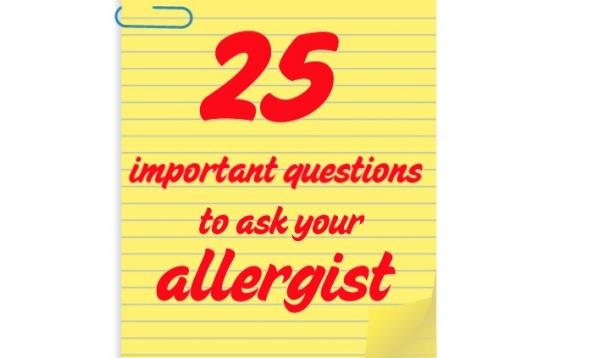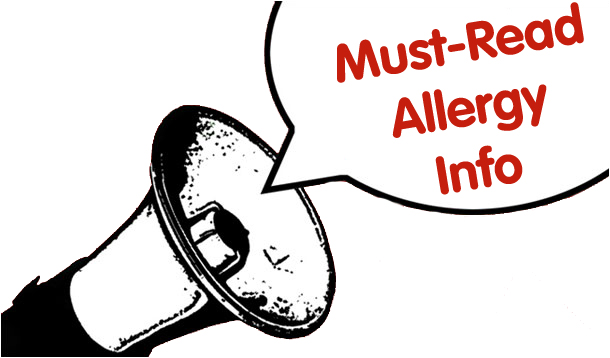
When I began to suspect my son's reactions as an infant were somehow linked to food allergies, I started logging them. I'd track the foods I ate, and the reactions he'd have. Long before we ever met our allergist, I had a list a mile long of questions I needed answers to, and even then, I felt nervous about his diagnosis. There's so much to know about all kinds of severe allergies, and even now that we've had three-and-a-half years' worth of experience with his severe allergies, he throws us nice curveballs regularly so we don't get too comfortable. (Hello, allergy to cold.)
Sometimes the wait to see an allergist is months long, so during this time, you might as well gain as much insight into suspected severe allergies as possible, and arm yourself with questions for when you do finally visit your allergy specialist. We see a pediatric allergist for my son's severe allergies; don't be afraid to specifically request one with pediatric focus. They have a great handle on kids' needs and severe allergy management.
If you're having reactions, track them, always. Take note of what you eat, what you come in contact with, and how you feel. If your child is old enough to explain the way they feel, ask them, and keep track. Have as much information to share with the allergist during your first appointment as possible. There are a lot of important questions you'll want to ask your allergist about your child's specific severe allergies, and I've written some of them here for you. Remember that the key to safety is education, so don't hesitate to ask as many questions of your allergist as you like.
Carrying an EpiPen Auto-Injector gives me a sense of security, buying me those invaluable minutes to get him to an emergency room. But, as even Spider-Man knows, with great power comes great responsibility and when we were prescribed the EpiPen, I had a million questions. Along with speaking to other EpiPen-packing parents and your allergist, you can find great answers on the EpiPen Facebook page.
 Severe allergies are on the rise in Canada.
Severe allergies are on the rise in Canada.
This is proudly sponsored by EpiPen®.
EpiPen.ca
The opinions expressed in this post are the opinions of the individual author and may not reflect the opinions of Pfizer Canada, the Canadian distributor of EpiPen. Pfizer Canada reviews all material to ensure medical accuracy of statements.
EpiPen® and EpiPen® Jr (epinephrine) Auto-Injectors are indicated for the emergency treatment of anaphylactic reactions in patients who are determined to be at increased risk for anaphylaxis, including individuals with a history of anaphylactic reactions. Selection of the appropriate dosage strength is determined according to patient body weight.
EpiPen® and EpiPen® Jr Auto-Injectors are designed as emergency supportive therapy only. They are not a replacement for subsequent medical or hospital care. After administration, patients should seek medical attention immediately or go to the emergency room. For the next 48 hours, patients must stay within close proximity to a healthcare facility or where they can call 911. To ensure this product is right for you, always read and follow the label. Please consult the Consumer Information leaflet in your product package for complete dosage and administration instructions.
© 2013 Pfizer Canada Inc., Kirkland, Quebec H9J 2M5 • Toll free: 1-877-EPIPEN1 (1-877-374-7361)
EpiPen®, EpiPen® Jr are registered trademarks of Mylan Inc. licensed exclusively to its wholly-owned affiliate, Mylan Specialty, L.P.; sub-licensee, Pfizer Canada Inc., Kirkland, Quebec H9J 2M5